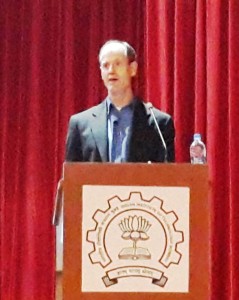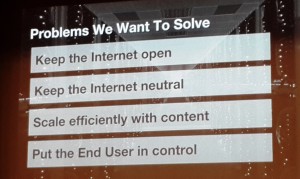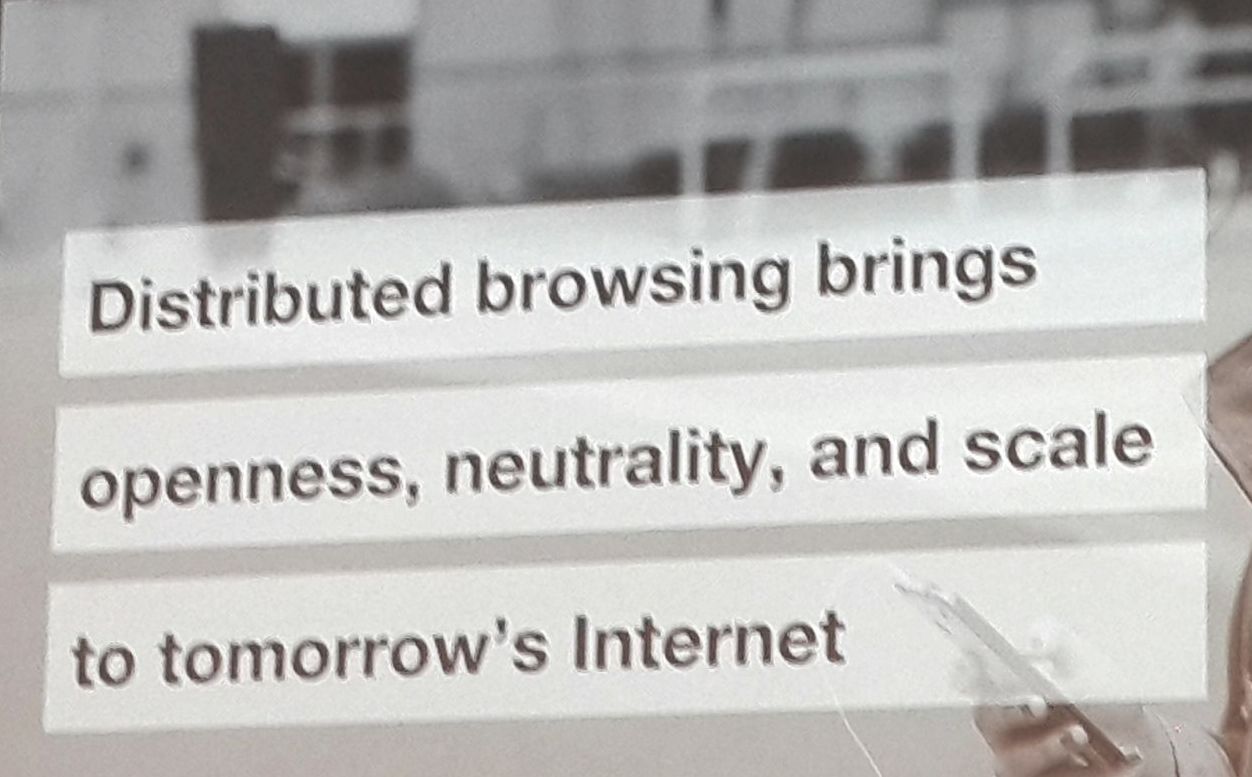–Brian Pereira
Everyone is speculating whether Facebook’s Free Basics offers net neutrality (the full-page, double-spread ads in the dailies aren’t convincing me). But we got to hear about BitTorrent’s version of net neutrality on day-3 at the IIT-Bombay Techfest. Eric Klinker, BitTorrent’s President and CEO feels that the Internet should be more distributed – and should work the way BitTorrent does. In fact, he even showed us a couple of his peer-to-peer applications that are much more efficient than what we use for mobile instant messaging, browsing and live streaming today. For the uninitiated, BitTorrent is a communications protocol that does not need a server, and which facilitates peer-to-peer exchange of large data files over the Internet.
 Speaking in the seminar series at IIT-Bombay Techfest Klinker said, “BitTorrent is used for scientific collaboration on large data sets. And BitTorrent is committed to building an Internet that is more distributed and which puts the user back in control. The Internet should be people powered.”
Speaking in the seminar series at IIT-Bombay Techfest Klinker said, “BitTorrent is used for scientific collaboration on large data sets. And BitTorrent is committed to building an Internet that is more distributed and which puts the user back in control. The Internet should be people powered.”
Ironically, BitTorrent is banned on the IIT-Bombay campus, and IIT is known for its significant contribution towards scientific research.
Klinker pointed out that the early architects of the Internet created a network that was seemingly distributed, but was actually not.
“When the Internet was introduced it was open, distributed and peer-to-peer. It was a network that allowed anyone to create content. But over time that network changed; the Internet evolved into walled gardens. Today we access content off the cloud. The Cloud, which is part of the (modern) Internet, is centralised and highly controlled. And that restricts innovation,” said Klinker.
Early users of the Internet will recall how the Internet, when it was introduced, was open, distributed and peer-to-peer. And non-commercial.
“Today’s Internet is a highly centralised platform for apps and there is not much freedom for users. Apps like e-mail, Skype, browsing, VoIP, WhatsApp, Facebook are all centralised. That means people have access to all your information – Facebook sells all your information to marketers. But this generation of users don’t really care about privacy. They don’t mind if their information is accessed by others,” said Klinker.
He said centralisation is all about control, and that governments and private companies want to control access.
“There’s no technical requirement for Facebook to be built on a centralised environment. It could be built in a distributed way,” said Klinker.
He cited an example of how the Brazilian court ordered the WhatsApp messaging service to be suspended.
“Why was that so easy to accomplish? The protocols make it easy to just turn off a service. So evidently, that is not a very robust system,” said Klinker.
He explained that the BitTorrent protocol outsources content distribution infrastructure to the crowd that wants access to the content.
 “Content is getting bigger and the number of devices that connect to the Internet is growing. This far outweighs the capacity of the network. To make a truly big impact we need to redefine the Web. What if the web worked the way BitTorrent does?” asked Klinker.
“Content is getting bigger and the number of devices that connect to the Internet is growing. This far outweighs the capacity of the network. To make a truly big impact we need to redefine the Web. What if the web worked the way BitTorrent does?” asked Klinker.
Examples of distributed applications
Klinker also spoke about some of the distributed applications that BitTorrent was developing. And all of them do not need a server. He claimed that itself reduces operational costs.
BitTorrent Sync – This app is used for collaborating with peers on projects. Sync skips the cloud and finds the shortest path between devices when transferring data. No Cloud. No uploading to third-party servers. Just fast, simple file syncing.
BitTorrent Bleep is a peer-to-peer messaging application that doesn’t use servers, unlike WhatsApp, which is centralised. It also has a feature for self-destructing messages.
BitTorrent OnAir is a peer-to-peer online live broadcasting application. BitTorrent claims there is no lag and low latency. It offers scaleable, linear video.
Project Mealstrom (beta) – A browser that supports existing web standards such as HTML, JavaScript, CSS. It delivers web pages via a torrent. It’s content addressable – infohashes specify content – not location links or URLs.
The traditional web is built on locations and web addresses – in the form of URLS – which specify hosts and paths to folders and files.
BitTorrent claims this browser is 16x faster. It integrates a torrent engine into the web browser. The web content itself is a torrent – no Web server required!
Also check out the Photo Gallery section on this site for some fun Techfest photos.
———————————————————————————————
All images are copyright (c)









